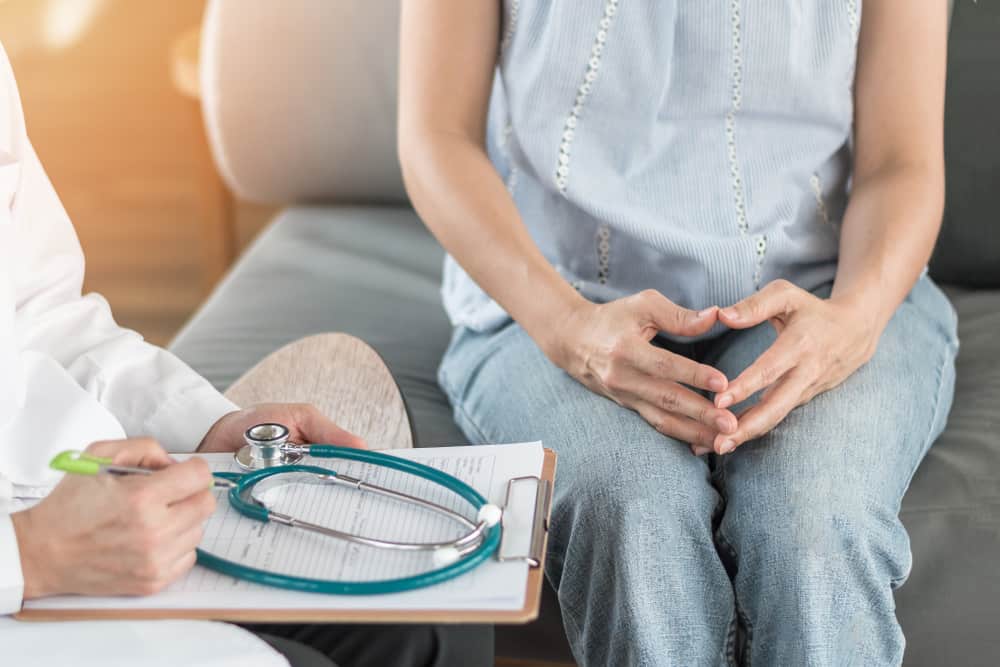Contents:
- Medical Video: What Causes Chest Pain When It's Not Your Heart
- What is angina?
- How to deal with angina after a heart attack
- Medications that can help overcome angina
- What if the symptoms of angina are severe?
Medical Video: What Causes Chest Pain When It's Not Your Heart
About 20 percent of people who have had a heart attack will experience angina again, aka chest pain. This is revealed in a study in the Archives of Internal Medicine. In this study, researchers also found that angina will occur more often one year after a person has a heart attack. Then how do you deal with angina after a heart attack? Check here.
What is angina?
Angina is chest pain or discomfort that is usually caused by a lack of blood flow to the heart. This can be caused by narrowing or blockage of the coronary arteries.
Angina is divided into three types, namely stable, unstable, and variant.
Stable angina is a condition of angina that occurs regularly and can be treated with medication. Unstable angina is a dangerous condition and tends to lead to a heart attack. Whereas angina variants are the condition of your coronary arteries that experience sudden spasms that can strike when you rest, and can be controlled with drugs.
How to deal with angina after a heart attack
Most people who have stable angina can control their symptoms by taking prescription drugs or nitroglycerin if needed. Active movement can also prevent angina after a heart attack. However, if this doesn't help you overcome angina, you can try the following tips:
- If there is an activity that causes angina, stop immediately and take a short break. It's okay to move, but manage and keep your activities up to a stage that doesn't cause symptoms of angina. More details, discuss with your doctor what physical activity is still allowed and which needs to be avoided because the condition of each person is different.
- To help the heart to pump blood stably, it's good to warm up before doing strenuous activities.
- Give pause to rest and digest food. Do not direct heavy activity after eating.
- Changing your diet can help prevent relapse. Tips, eat foods with smaller portions and often during the day, not two or three large meals directly.
Medications that can help overcome angina
Some drugs can control the symptoms of angina, including:
Aspirin
Aspirin is a drug that can reduce blood clots. This drug is needed to facilitate blood flow through the narrowed heart arteries.
Nitroglycerin
Nitroglycerin or nitrate is a drug that is often used if you feel pain in the heart. To overcome the symptoms of angina, this drug serves to relieve and widen the blood vessels so that more blood flows to your heart muscle.
Beta-blocker drugs
This drug works by blocking the effects of the hormone epinephrine, also known as adrenaline. As a result, your heart beats more slowly and can reduce blood pressure. Beta-blockers can also help blood vessels to relax while improving blood flow.
Statins
Statins are drugs that are used to reduce cholesterol levels in the blood. This drug works by blocking substances needed to produce cholesterol.
Statins can also help your body reabsorb cholesterol that has accumulated on plaques on the walls of your arteries. Statins also help prevent further blockages in your blood vessels.
What if the symptoms of angina are severe?
If the symptoms get worse and you have difficulty coping with angina, you can do the following:
- Reduce physical activity that is too heavy.
- Adjust conditions at home to your condition. For example, your room is on the top floor, you should move to a room on the first floor. Going up and down the stairs requires breathing and extra energy which can trigger angina.
- Try taking nitroglycerin before you start physical activity that can cause angina.
- Call your doctor if you start experiencing symptoms of angina.












